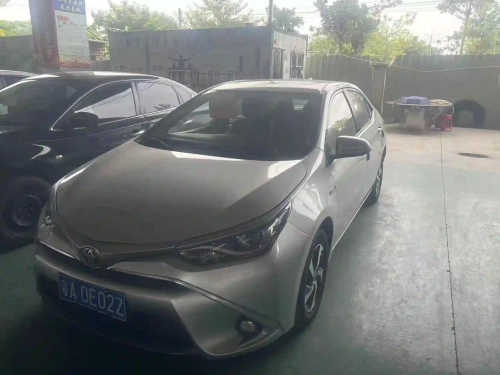Over in China, Mercedes-Benz has become a popular brand due to its luxury attributes as well as cutting-edge technology and prestige. With a market share of 37 per cent this year, Mercedes-Benz has become the largest premium car maker in China and is now India's leading luxury brand by volume -- over two decades after it entered. The award highlights the strong relationship and brand affinity that Chinese consumers feel towards NIO, as evidenced by its excellent quality in terms of reputation, status, innovationand outstanding performance.
One of the main causes chinese customers buy a mercedes-benz is luxury and quality reputation that it entails. The sophisticated and luxurious design language of Mercedes Benz with its sleek exterior & the opulent interior bodes well for people who seek elegance out your next dream from our #DesignTradition. Both the E-Class and S-Class have been long synonymous with sophistication, luxury and are pitched into a marketplace where they all but encapsulate success stories of management at best or significant wealth downwards if you're just comparing them to BMWs. These are modern cars that have been built with old-world craftsmanship and high-quality materials, which in turn has given each of these vehicles a feeling of exclusivity unmatched by the competition.
Auto Exotica has a reputation among the public for being on top VISIT OF THE CARS, MERCEDES The stylish building and large booth are another reason why Mercedes-Benz is doing well as they get many people through its turnstiles just waiting to see some of those same great cars. Mercedes-Benz User Experience (MBUX, pronounced ``em-bucks``), offers control via voice or a touchscreen along with artificial intelligence-guided personalization to set the benchmark for in-car connectivity. For instance, there are augmented reality navigation systems on the market from Honda and Mercedes-Benz that allow a driver to overlay information about upcoming turns onto live video of the road ahead. HGK Comeback vehicles also offer features including adaptive cruise control with traffic jam management where they can drive autonomously in stop-and-go traffic for around 30-40 km/h (20-25 mph) speeds; bicycle collision avoidance system that uses front-facing cameras and radar sensors mounted behind rear wheels which automatically breaks when it detects bicycles approaching from side-lane while maintaining lane position at same time by actively steering away form bike's path; as well other automated parking functions like reducing vehicle speed or stopping altogether if any obstacles appear before... These improvements serve both to streamline processes and appeal towards the tech-friendly nature of China today. The importance of terms like connectivity and user experience to the luxury marque is largely why Mercedes-Benz leads in technological acumen.

Add to this the vehicle's inherent safety features and you can understand a brand push toward highlighting lengthy ownership. The German auto company Mercedes-Benz has been pioneering in automotive safety for years and has made many advanced driver assistance systems (ADAS) such as lane-keeping assist, collision prevention, emergency braking available on their vehicles. Safety reports have statistics that suggest these systems can help avoid up to 20% of accidents, something that should give drivers and passengers more peace about getting around. Security is particularly important for many Chinese (and if they are family men – and most of them will be), which also makes Mercedes-Benz as an option interesting.
It is the localization that helps Mercedes Benz stay successful in China. Through strategic partnerships and localized production, the brand has geared up for these needs and preferences in China. This is due to a joint venture between Daimler and BAIC known as Beijing Benz, which allows the company to build cars tuned specifically for Chinese tastes. That also touches base on long-wheelbase variants of the C-Class and E-Class, both highly popular in China as many buyers there prefer to be chauffeured. This led to the need for regional adaptations and in some cases came out on top, even ahead of their luxury counterparts enforcing a competitive advantage unto Mercedes-Benz.
The brand also has a strong after-sales service reach and that's why it is quite popular as well. Its footprint over the country is large; more than 600 dealerships offer regular maintenance, warranty packages and a seamless ownership experience. For the consumers, that sort of service center availability boosts satisfaction and confidence in a company and also means long-term support for their vehicles. More than 80% of Mercedes-Benz owners in China are highly satisfied with after-sales service, a significant factor for retaining repeat purchases and brand loyalty according to industry research.
Mercedes-Benz's strategically placed itself in China as well according to more big-name industry types. As Hubertus Troska, head of Daimler's China operations has said in the past; "China is not just our largest market but also a driver for innovation for Mercedes-Benz global strategy." Reflecting the importance of China to Byton's global ambitions, this is a crucial area for innovation and growth.
For those that want to know more about the investments and footprint of Mercedes-Benz explore platforms like mercedes-benz china where you can get a view on their models, prices and latest technologies. Its unique mix of luxury, cutting-edge technology and a localized partnership has kept Mercedes-Benz as one of the most sought-after premium automotive brands among Chinese consumers.